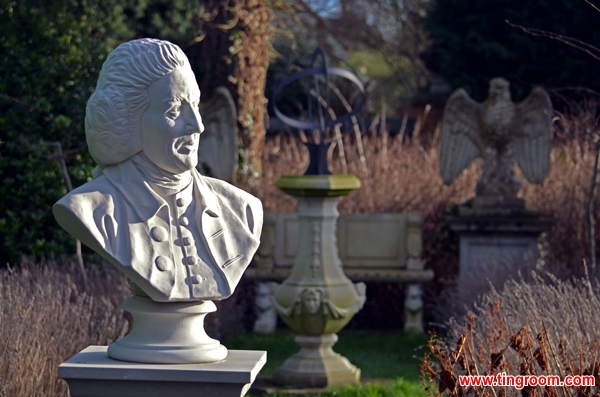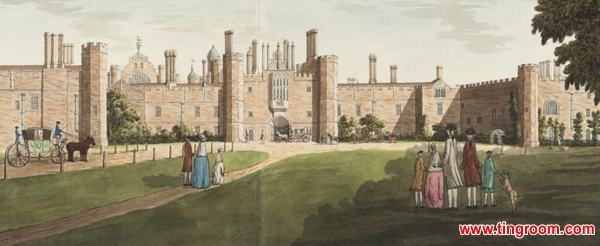-
(单词翻译:双击或拖选)
In a nation of fabulous gardens, the grounds of Hampton Court Palace, in southern England, are a wonder unsurpassed. And their 18th-century sculptor, "Capability" Brown, inspired landowners and landscapers throughout Britain and Europe. Catherine the Great, Empress of Russia, was so inspired that she acquired a series of paintings of the gardens in order to replicate them. Now, those depictions have been returned to England.

Lancelot "Capability" Brown
The great gardens of Hampton Court Palace were once the playground of princes and kings.
Today's views are similar to those when the famed gardener, Lancelot "Capability" Brown, was in charge of the estate in the 18th century.
To celebrate Capability Brown's 300th anniversary, a rare collection of drawings and landscapes have been returned to Hampton Court, after being discovered in the Hermitage Museum in St. Petersburg, Russia.

Visitors to the palace c1778 by John Spyers (detail) © 2016, The State Hermitage Museum, St Petersburg
At first, Russian experts were unsure who the artist was. But then Mikhail Dedinkin, of the Hermitage Museum in St Petersburg, embarked on an artistic detective story.
Dedinkin deduced that the mystery painter was one John Spyers, assistant to "Capability" Brown when he was director of royal gardens.
An ambitious and competent draughtsman, Spyers sold the drawings to the empress for a small fortune to assist her gardeners recreate a similar style.
The Hampton Court views show the English landscape style at its best - always including a water feature at its centre. The gardens were originally created by King William and Queen Mary when they lived there in the 17th Century, with formal landscaping and clipped yews, but Capability Brown relaxed the formal style in the 18th Century.
"The Empress and the Gardener" exhibition runs until September the 4th.

















